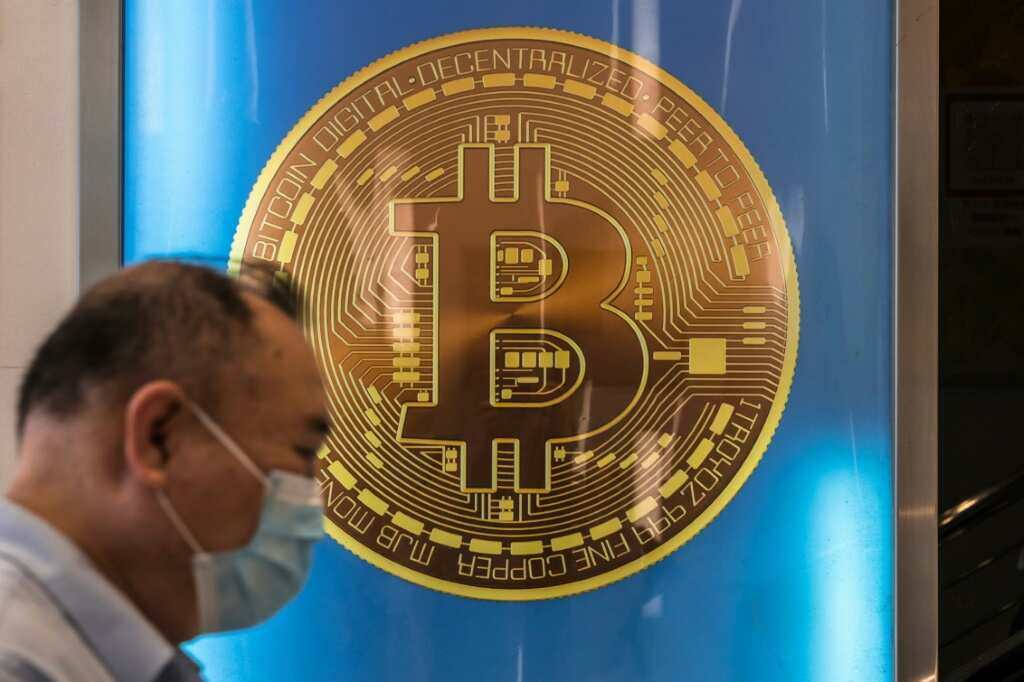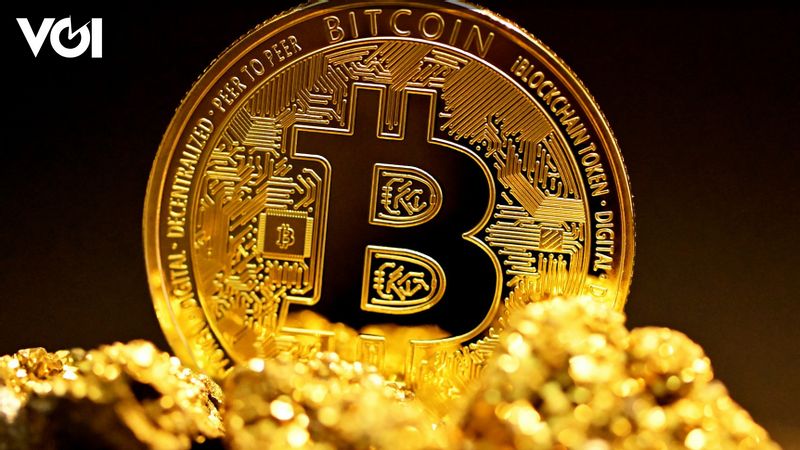







Bitcoin miners are preparing for the upcoming 'halving' event, which occurs roughly every four years and impacts the production of Bitcoin. During the halving, the block reward is cut in half, reducing the number of new bitcoins entering the market. The next halving is expected to occur sometime late Friday or early Saturday [3b3e273f].
The bitcoin market has undergone a 'halving' of the reward for operating the cryptocurrency. The reward for mining bitcoin has been halved from 6.25 bitcoins per new block to 3.125 bitcoins. This process, called halving, occurs approximately every four years. The halving slows down the rate at which new bitcoins are created, limiting the overall supply. The primary purpose of halving is to control bitcoin's supply and potentially increase its value. The price of bitcoin has surged by 50% since the start of the year, reaching a record high of $73,797. However, the recent halving poses a survival test for bitcoin mining companies, as it significantly reduces their income source and may lead to sector consolidation [b52b1a43].
Bitcoin fees have surpassed Ethereum fees for three consecutive days as miners and traders prepare for the approaching Bitcoin halving and the potential launch of Runes on Bitcoin. On April 17, Bitcoin miners earned $7.47 million in fees, surpassing Ethereum stakers, who received $7.31 million, according to Crypto Fees. Bitcoin transaction fees are influenced by the size or data volume of transactions and the demand for block space during transaction requests. The rise in Bitcoin fees comes at an important time for miners as the Bitcoin halving event on April 20 will reduce the mining reward from 6.25 BTC to 3.125 BTC, leading to a significant reduction in miner revenue. Currently, about 900 Bitcoins are mined daily, generating around $57.2 million at current prices. After the halving, the share of block rewards from transaction fees will rise significantly as approximately 450 Bitcoin will be mined daily. The recent increase in Bitcoin fees may be partly due to a decline in BRC-20 token prices, as some traders shift their attention to Runes [f07cfdeb].
The impact of the halving on Bitcoin's price is uncertain. Past halvings have been followed by mixed price performance in the short term and significant price increases in the long term. However, the current price of Bitcoin has been slumping from previous highs, reaching $59,900 on April 17 [1caa47da].
Miners may face challenges in compensating for the reduction in rewards. The impending reward reduction, combined with increasing costs and diminishing returns, could lead to the closure of weaker mining operations or their acquisition by larger competitors. To stay competitive, mining companies are investing in more efficient machines, exploring cheaper and greener energy sources, and considering consolidation opportunities. The environmental impact of Bitcoin mining is a concern, as it consumes a lot of energy, primarily from pollutive sources. The use of clean energy in mining has increased, but production pressures may lead to the use of cheaper, less climate-friendly energy sources [3b3e273f].
Bitcoin whales have been accumulating Bitcoin ahead of the halving event. These whales have purchased a collective 319,310 BTC in the past three months, representing roughly 1.4% of the total Bitcoin supply. Smaller wallets, on the other hand, have been selling off their holdings. This accumulation by influential wallets suggests a strong belief in Bitcoin's long-term value [800ad68a].
Bittime, a crypto asset investment platform, recommends monitoring four tokens ahead of the halving event: Ondo Finance (ONDO), Internet Computer Protocol (ICP), Dogecoin (DOGE), and Aevo (AEVO). Bittime suggests diversifying assets to maintain a positive portfolio. The recommended tokens have seen significant increases in value over the past month [e61abe3f].
Bitcoin whales have also been exploring alternative cryptocurrencies like 99Bitcoins ($99BTC) for potentially higher returns. 99Bitcoins is a Learn-to-Earn crypto platform that offers a unique proposition of incentivizing users to expand their crypto knowledge and potentially earn rewards. The platform has a loyal community of over 700,000 YouTube subscribers and 2 million registered users. The launch of the $99BTC token introduces a novel Learn-to-Earn rewards model. Holding $99BTC tokens unlocks exclusive benefits such as staking rewards, access to specialized training courses, informative trading webinars, and VIP community groups. The success of 99Bitcoins depends on factors such as project development and execution, widespread adoption of the platform, and overall market conditions [800ad68a].
Regulatory developments are also shaping the Bitcoin landscape. The British government is reportedly working on regulations for stablecoins and crypto staking, while U.S. Senators Kirsten Gillibrand and Cynthia Lummis announce legislation to govern the use of stablecoins. Compliance officers from three exchanges, including FTX, speak about the importance of compliance controls and learning from their experiences. Kraken, the second-largest U.S.-based crypto exchange, releases its own wallet, and Crypto.com and Coinbase are expanding their workforce. Additionally, Web3 move-and-earn lifestyle app Steppen launches a limited-edition NFT collection in collaboration with Adidas [1caa47da].
Canaan, a Singapore-based cryptocurrency-mining equipment maker, has unveiled a new energy-saving machine in Hong Kong designed to help miners stay competitive after the rewards for mining bitcoin were reduced by 50% after the recent 'halving' event. The Nasdaq-listed company launched the latest A1566 model of its flagship Avalon A15 series at the Bitcoin Asia 2024 conference. The new machine can compute more data while consuming less energy compared to previous models. The halving event, which occurred on April 19, reduced the amount of bitcoin that miners receive for operating the powerful computers that verify transactions on the blockchain. Canaan reported a 67.5% plunge in total revenue last year, citing lower selling prices of its equipment. Canaan has businesses in the US, Canada, the Middle East, and Southeast Asia [2703823a].
The recent Bitcoin halving marks a crucial milestone in Bitcoin’s journey towards acceptance and credibility. Halving events reduce the number of new Bitcoins mined by half, introducing a deflationary supply mechanism. Historical data shows that past halvings resulted in an average price increase of around 16% over the 60 days following each event. The April 2024 halving event should be viewed within the context of recent market developments, such as the approval of Bitcoin ETFs in the USA and Hong Kong, which increased accessibility and broadened the market base. The halving also introduces scarcity, as the number of new Bitcoins entering circulation is reduced, potentially driving significant price increases over time. The halving supports Bitcoin's role as a store of value and a hedge against economic uncertainties. Some commentators believe that the halving also contributes to the sustainability of the Bitcoin network by raising transaction fees as rewards decline. Overall, the combination of deflationary mechanisms, institutional interest, and global adoption will support Bitcoin's appeal as a financial asset. [dd998284]